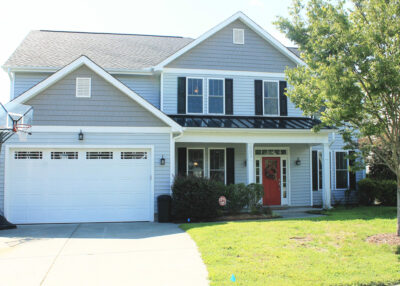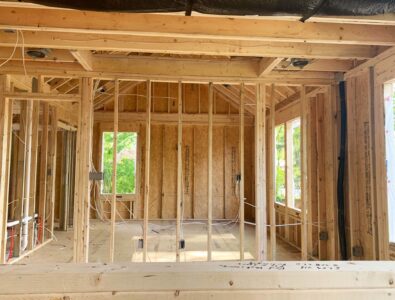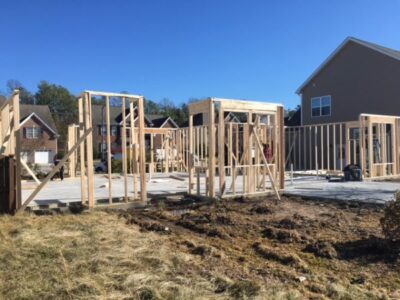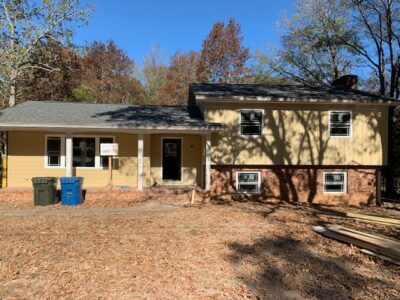Whole Home Renovation vs. New Construction
September 8th, 2023 | by Brittany OverlyThe decision between total home renovations and new construction depends on factors such as budget, desired customization, and the condition of the existing structure, with renovations offering the potential to preserve the character of the original home while new construction allows for greater flexibility and modern design choices.

Deciding between total home renovations/remodeling and new construction depends on various factors, including your budget, goals, and circumstances. Here are some key considerations for each option:
Total Home Renovations/Remodeling:
- Cost: Renovations are often more cost-effective than building a new home from scratch, especially if you can retain the existing structure and layout.
- Location: If you love your current neighborhood, have strong community ties, or appreciate the convenience of your current location, renovating allows you to stay in the same area.
- Environmental Impact: Renovating an existing home is generally more environmentally friendly than constructing a new one, as it reduces waste and preserves existing resources.
- Character and History: Older homes often have unique architectural features and historical value that you may want to preserve or restore.

- Regulations: Renovating might be subject to fewer regulatory hurdles compared to new construction, such as zoning restrictions, building codes, and permits.
- Timeframe: Renovations can be completed faster than new construction, assuming you don’t have to deal with extensive structural changes.
- Emotional Attachment: If you have sentimental value attached to your current home, renovating allows you to preserve those memories.
New Construction:

- Customization: Building a new home gives you complete control over the design and layout, allowing you to create a space that perfectly suits your needs and preferences.
- Energy Efficiency: New construction allows you to incorporate the latest energy-efficient technologies and materials, potentially reducing long-term operating costs.
- No Hidden Issues: Older homes may have hidden structural problems or outdated systems that can be costly to address during renovations. With new construction, you start with a clean slate.
- Modern Amenities: New homes can be designed with modern amenities and conveniences, such as smart home systems, open floor plans, and spacious closets.

- Long-Term Investment: A newly constructed home may appreciate in value more rapidly than an older one, depending on market conditions.
- Warranty: New homes typically come with warranties that cover structural issues and defects, providing peace of mind.
- Compliance: New construction ensures that your home is built to the latest building codes and safety standards.
Ultimately, the decision between total home renovations/remodeling and new construction depends on your specific goals, budget, and preferences. It’s essential to carefully weigh these factors, consult with professionals, and conduct a thorough cost-benefit analysis before making your choice. Additionally, consider factors like your timeline, the availability of skilled contractors, and your willingness to manage the complexities of either option.

